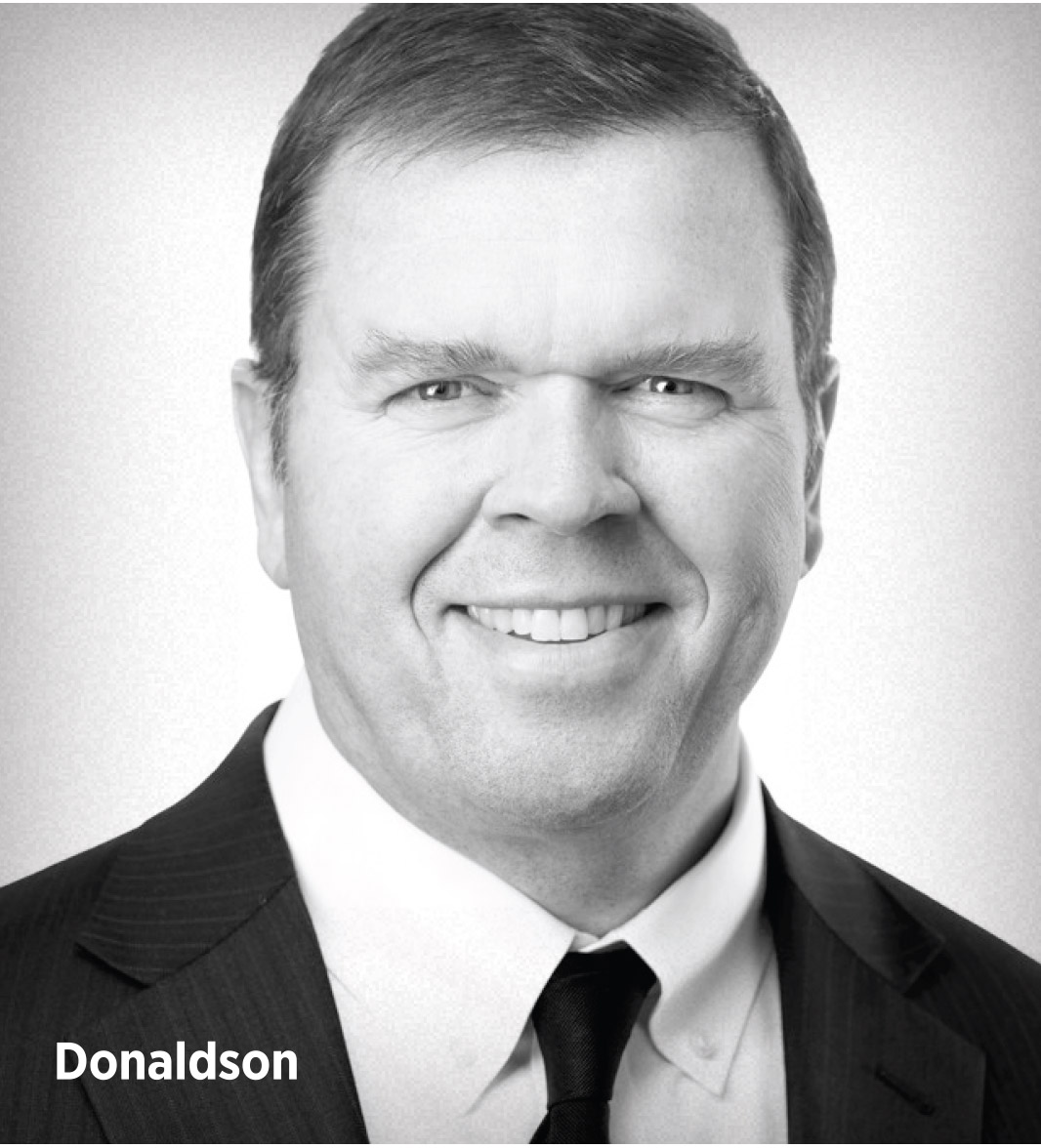Simplicity in it for the long haul

Simplicity Group created an expansion plan in 2016 that has since become readily recognizable among the big players in the insurance marketing industry:
Growth, scale and efficiencies.
“Each of the companies has their own take on what they’re doing,” said Bruce Donaldson, president and CEO of Simplicity. “We do engage in merger and acquisition activity, but that’s not the business that we’re in. We are in the business of supporting independent insurance agents and financial advisors, whether they be in a broker/dealer, an RIA, with properly placing insurance products into a holistic financial plan.”

While exact sales numbers are not public, Donaldson said: “We’re certainly a top five annuity and in the top five life insurance wholesale platforms.”
The Simplicity model was promising enough to make private equity firms take notice. Aquiline Capital Partners took a majority stake in the company, which provided the backing for Simplicity’s emergence in the life insurance/annuity space.
The company’s timing was good, as distribution evolution favored marketing firms that could deliver scale.
“I think the success that we’ve had … has brought a lot of attention to the sector and other people into the industry who are also trying to execute their version of an M&A plan,” Donaldson noted.
It didn’t take long for Simplicity to have competition in the race to scale up. Integrity Group and AmeriLife are both turning private equity investment into substantial acquisition activity.
Marketing firms are changing the business of distribution, said Sheryl Moore, president and CEO of Moore Market Intelligence and Wink Inc. Small- to mid-sized insurance marketing organizations and field marketing organizations are being gobbled up so quickly, it is forcing many to reconsider their plan, she added.
“It is hard to compete against an Integrity, Simplicity or AmeriLife in terms of sales and, therefore, annuity commission payouts,” she said. “For this reason, I’ve seen friends talking to these firms, when they previously wouldn’t have considered selling so soon. It just seems like for those who had planned to retire in five to seven years, I am seeing more of them entertain discussions with these three firms than I would have anticipated.”
Recapitalizing the company
In 2020, Lee Equity Partners struck a deal to become the new majority owner of Simplicity. Those terms were not disclosed, but the company’s acquisition activity further revved up.
In 2021-22, Simplicity closed 13 acquisitions, according to Crunchbase. In July 2022, Simplicity added LifePro Financial Services, a San Diego-based financial products distribution business serving independent financial professionals across the country with a range of financial planning and sales and marketing services.
Like many firms that opt to join with the bigger IMOs, LifePro already had a working relationship with Simplicity, said Ben Nevejans, president of LifePro and a new Simplicity partner.
“Joining forces with Simplicity will allow us to accelerate our growth and focus on what we do best: deliver superior service, support and products to help agents and advisors across the country,” he said when the deal was announced.
Simplicity is up to 50 acquisitions now in a buying spree that began in 2016 and, as of late January, included two deals closed in 2023.
“We developed a plan in 2016 to build what we hope will be the leading financial products distribution business,” said Donaldson, who came on as president that year and added the CEO title in 2018. “And we’ve been executing on that plan successfully for the last six and a half years.”
Barriers to growth
While many conditions continue to be strong for marketing and distribution growth, there are disruptions lurking. Mega-marketing firms like Simplicity, Integrity and AmeriLife are as affected by these trends as any carrier.
For starters, the producer shortage is acute. The median age of insurance agents is 46, a Zippia survey found, compared to 42.2 for the overall U.S. workforce. However, several studies conclude that as much as one-quarter of the insurance workforce is 55 or older.
The COVID-19 pandemic did not help the insurance industry personnel problem. Studies show that older workers are more likely to just retire early rather than press on through adversity such as job loss or a pandemic interruption.
Data from the past two years proves that to be true, as insurance workforce retirements rose dramatically. In 2021, the financial services sector recorded the highest average monthly retirements in more than a decade.
Donaldson is confident that market forces will fill the need for agents and advisors.
“As the economy continues to grow and the boomer generation gets set to retire, I think you’ll see more and younger successful advisors come into the financial planning market,” he said. “Where we see huge growth is financial advisors, who have historically not worked with insurance products, get comfortable with the benefits and get comfortable with how to properly position insurance products in a holistic financial plan.”
The ongoing tightening of regulation is another disruption for the industry — especially for IMOs that act as financial institutions for producer networks. The Department of Labor is again working on a new fiduciary rule definition, one that some analysts could nudge a one-time advice into the fiduciary umbrella.
As it stands, the DOL investment advice rule package published under the Trump administration makes rollover advice fiduciary. At the state level, a “best interest” standard is winning support in more states each month.
“We do worry a lot about how rules and regulations are written and implemented,” he explained. “Because if you look at the original fiduciary rule, there was a view that it was going to be very hard to implement. And that’s always a concern when you’re talking about new regulations. But if you’re talking about just basic standards of care, no, we’re not concerned about that.”
Private plans
Looking to the future, Simplicity simply plans to keep doing what it is doing. Rather than disrupting the traditional insurance model, Donaldson sees his company working in tandem with carriers.
“It’s been great because they understand what the Simplicity business model is,” he said, “and that’s to grow the overall distribution base. And we’re not growing for the sake of growing. We’re actually growing the market and helping educate the consumers on the benefits of insurance products that we offer.”
While speculation grows that the large-scale IMOs will eventually transition, to public ownership in order to maximize profits, Simplicity has no such plans, Donaldson said.
“As a result of the strength of our position we don’t have to commit to one sort of capital plan or another because we have a lot of options available to us,” he added.
InsuranceNewsNet Senior Editor John Hilton has covered business and other beats in more than 20 years of daily journalism. John may be reached at [email protected]. Follow him on Twitter @INNJohnH.






Expand your toolbox with cash value life insurance
Your road map to success: How to have it all — with Stephanie Bogan
Advisor News
- Retirement optimism climbs, but emotion-driven investing threatens growth
- US economy to ride tax cut tailwind but faces risks
- Investor use of online brokerage accounts, new investment techniques rises
- How 831(b) plans can protect your practice from unexpected, uninsured costs
- Does a $1M make you rich? Many millionaires today don’t think so
More Advisor NewsAnnuity News
- Judge denies new trial for Jeffrey Cutter on Advisors Act violation
- Great-West Life & Annuity Insurance Company Trademark Application for “EMPOWER BENEFIT CONSULTING SERVICES” Filed: Great-West Life & Annuity Insurance Company
- 2025 Top 5 Annuity Stories: Lawsuits, layoffs and Brighthouse sale rumors
- An Application for the Trademark “DYNAMIC RETIREMENT MANAGER” Has Been Filed by Great-West Life & Annuity Insurance Company: Great-West Life & Annuity Insurance Company
- Product understanding will drive the future of insurance
More Annuity NewsHealth/Employee Benefits News
Life Insurance News
- To attract Gen Z, insurance must rewrite its story
- Baby On Board
- 2025 Top 5 Life Insurance Stories: IUL takes center stage as lawsuits pile up
- Private placement securities continue to be attractive to insurers
- Inszone Insurance Services Expands Benefits Department in Michigan with Acquisition of Voyage Benefits, LLC
More Life Insurance News